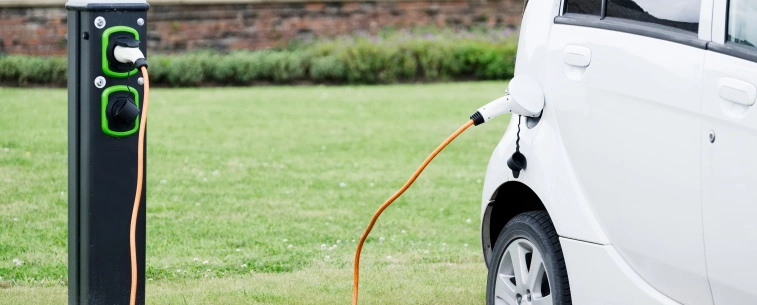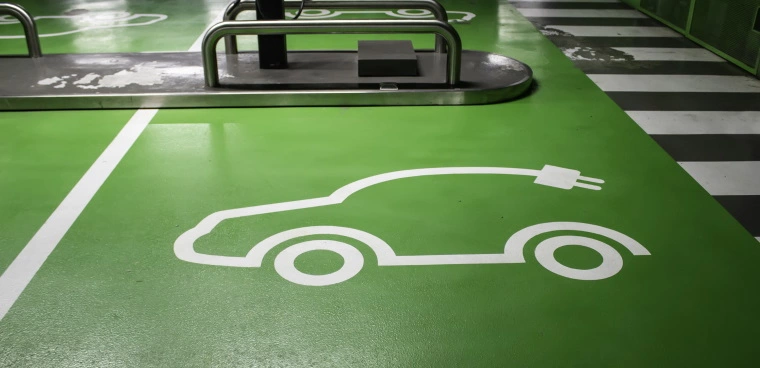All New Builds To Have Electric Vehicle Chargers Installed
Jack Dreyer | Tuesday 21st June 2022 2:43pm

It’s safe to say that Britain's roads are becoming ever more eco-friendly.
Nowadays, it’s completely normal to see electric vehicles on the road, or hear the whir of a hybrid vehicle passing by. But with the increase in these vehicles, naturally, comes an increased need for their charging facilities.
Electric vehicle charging points have gradually popped up all over the country in public spaces - from supermarket car parks to service station waiting areas. But now, as these vehicles are becoming the norm, charging points are being integrated into domestic life too.
Read on to find about the law change for electric vehicle charging points and new builds.
When does the electric car charger law come into force?
Due to the increased demand for electric vehicle chargers, in June 2022, the law surrounding EV charging points will be changing. After this date, every new build that is erected will have to be accompanied by an electric vehicle charger. This scheme has been described as a ‘necessity’ by the government, and is planned to roll out on a national scale.
According to the Department for Transport, from the 15th of June onwards, all buildings erected must have access to an electric vehicle charging point — that includes residential and commercial properties.
But why has this law come about? And what is the reason for this sudden change?

Why are new builds having electric car chargers installed?
The law is changing in order to promote the use of electric vehicles. People are much more likely to consider buying them if homes in their local area have facilities to charge them up. If there are more EV chargers, it is hoped that the uptake of electric vehicles will, in turn, increase.
Looking ahead, we must remember that in 2030 there is a planned ban on the sale of new diesel and petrol cars. So, it makes sense to pre-empt this change a few years in advance.
On the other hand, it also makes new builds a more attractive option for potential buyers. Say, for example, a young couple are looking to move to a newly-built area but have an electric vehicle; that now won’t be a blocker thanks to this law.
For the most part, however, the new law will help the UK achieve its legally-binding goal of net zero emissions by 2050.

More about the electric car charger law
Getting into specifics, the new law really does cover all bases. If a newly-built residential building has more than 10 parking spaces then chargers should be installed. This rule also applies to developments when there are more parking spaces than dwellings.
According to Tomas Edwards, Head of Marketing at GoWithFlow, the law is “a very necessary step in enabling decarbonised mobility”, comparing the law to Europe’s ‘Energy Performance of Buildings Directive’.
Contact us today
To find out more about electric vehicles, head over to our blog where we have plenty of up-to-date information. In the meantime, get in touch with the experts at your nearest Kwik Fit with any questions you might have.
Any facts, figures and prices shown in our blog articles are correct at time of publication.
Featured Articles
Is it Illegal to Drive With One Headlight?
Saturday 19th July 2025
Wondering if it’s illegal to drive with one headlight? Learn about the safety risks and penalties of illegal blown bulbs and why you should fix them promptly.
Air Con in EVs & Hybrids: Experts Answer Your Questions
Monday 30th June 2025
Does air con drain EV batteries? Can you use the air con while charging an electric car? Find out the answers to these questions & more from Kwik Fit’s experts.
Why Is Your Car Making a Noise? Fixes & Tips
Friday 13th June 2025
When your car starts making unexpected noises, it can certainly be quite disconcerting; it may be nothing to worry about, but here’s what you need to know.









